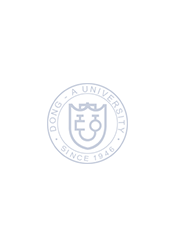| 000 | camIi | |
| 001 | 2210080840679 | |
| 003 | OCoLC | |
| 005 | 20180222153223 | |
| 006 | m o d | |
| 007 | cr |n||||||||| | |
| 008 | 170704s2017 oru ob 000 0 eng d | |
| 020 | ▼a9781532605789▼q(electronic bk.) | |
| 020 | ▼a1532605781▼q(electronic bk.) | |
| 020 | ▼z9781532605772 | |
| 020 | ▼z1532605773 | |
| 035 | ▼a(OCoLC)992738732 | |
| 040 | ▼aYDX▼beng▼erda▼epn▼cYDX▼dOCLCQ▼dOCLCO▼dN▼dOCLCF▼dUAB▼d221008 | |
| 043 | ▼an-us--- | |
| 050 | ▼aHQ751▼b.D877 2017eb | |
| 072 | ▼aBUS▼x032000▼2bisacsh | |
| 072 | ▼aSOC▼x000000▼2bisacsh | |
| 082 | ▼a363.92▼223 | |
| 100 | ▼aDurst, Dennis L.,▼eauthor. | |
| 245 | 00 | ▼aEugenics and Protestant social reform :▼bhereditary science and religion in America 1860-1940 /▼cDennis L. Durst. |
| 264 | ▼aEugene, Or. :▼bPickwick Publications,▼c2017. | |
| 300 | ▼a1 online resource | |
| 336 | ▼atext▼btxt▼2rdacontent | |
| 337 | ▼acomputer▼bc▼2rdamedia | |
| 338 | ▼aonline resource▼bcr▼2rdacarrier | |
| 504 | ▼aIncludes bibliographical references. | |
| 505 | ▼aIntroduction -- Degeneration theory and eugenics discourse -- Theories of heredity and the rise of eugenics -- "Stigmata of degeneration" : the religious rhetoric of eugenics -- Eugenic family studies, science, and religion -- The degenerate mind and hereditary mental defect -- Epilepsy and eugenics in scientific and religious perspective -- From sinful to criminal : the making of hereditary criminality -- Drink and the degeneration of the germ plasm -- Degeneration and the race question -- Theologians, hereditary sin, and eugenics -- Conclusion : the quest for good births. | |
| 520 | ▼aThe eugenics movement prior to the Second World War gave voice to the desire of many social reformers to promote good births and prevent bad births. Two sources of cultural authority in this period, science and religion, often found common cause in the promotion of eugenics. The rhetoric of biology and theology blended in strange ways through a common framework known as degeneration theory. Degeneration, a core concept of the eugenics movement, served as a key conceptual nexus between theological and scientific reflection on heredity among Protestant intellectuals and social reformers in the late nineteenth century and the early twentieth century. Elite efforts at social control of the allegedly "unfit" took the form of negative eugenics. This included marriage restrictions and even sterilization for many who were identified as having a suspect heredity. Speculations on heredity were deployed in identifying the feeble-minded, hereditary criminals, hereditary alcoholics, and racial minorities as presumed hindrances to the progress of civilization. A few social reformers trained in biology, anthropology, criminology, and theology eventually raised objections to the eugenics movement. Still, many thousands of citizens on the margins were labeled as defectives and suffered human rights violations during this turbulent time of social change. --▼cProvided by publisher. | |
| 588 | ▼aPrint version record. | |
| 590 | ▼aeBooks on EBSCOhost▼bAll EBSCO eBooks | |
| 648 | ▼a1800-1999▼2fast | |
| 650 | ▼aEugenics▼zUnited States▼xHistory. | |
| 650 | ▼aEugenics▼xMoral and ethical aspects. | |
| 650 | ▼aSterilization (Birth control)▼xReligious aspects. | |
| 650 | ▼aMedical ethics. | |
| 650 | ▼aSocial Darwinism. | |
| 650 | ▼aReligion and science▼xHistory▼y19th century. | |
| 650 | ▼aReligion and science▼xHistory▼y20th century. | |
| 650 | ▼aBUSINESS & ECONOMICS / Infrastructure▼2bisacsh | |
| 650 | ▼aSOCIAL SCIENCE / General▼2bisacsh | |
| 650 | ▼aEugenics.▼2fast▼0(OCoLC)fst00916432 | |
| 650 | ▼aEugenics▼xMoral and ethical aspects.▼2fast▼0(OCoLC)fst00916437 | |
| 650 | ▼aMedical ethics.▼2fast▼0(OCoLC)fst01014081 | |
| 650 | ▼aReligion and science.▼2fast▼0(OCoLC)fst01093848 | |
| 650 | ▼aSocial Darwinism.▼2fast▼0(OCoLC)fst01122237 | |
| 650 | ▼aSterilization (Birth control)▼xReligious aspects.▼2fast▼0(OCoLC)fst01133218 | |
| 651 | ▼aUnited States.▼2fast▼0(OCoLC)fst01204155 | |
| 655 | ▼aElectronic books. | |
| 655 | ▼aHistory.▼2fast▼0(OCoLC)fst01411628 | |
| 776 | ▼iPrint version:▼aDurst, Dennis L.▼tEugenics and Protestant social reform.▼dEugene, Or. : Pickwick Publications, 2017▼z9781532605772▼z1532605773▼w(OCoLC)983569628 | |
| 856 | ▼uhttp://search.ebscohost.com/login.aspx?direct=true&scope=site&db=nlebk&AN=1541244 | |
| 938 | ▼aYBP Library Services▼bYANK▼n14661434 | |
| 938 | ▼aEBSCOhost▼bEBSC▼n1541244 |
Eugenics and Protestant social reform :hereditary science and religion in America 1860-1940 /Dennis L. Durst

종류
전자책
서명
Eugenics and Protestant social reform :hereditary science and religion in America 1860-1940 /Dennis L. Durst
형태사항
1 online resource
주기사항
Includes bibliographical references. / The eugenics movement prior to the Second World War gave voice to the desire of many social reformers to promote good births and prevent bad births. Two sources of cultural authority in this period, science and religion, often found common cause in the promotion of eugenics. The rhetoric of biology and theology blended in strange ways through a common framework known as degeneration theory. Degeneration, a core concept of the eugenics movement, served as a key conceptual nexus between theological and scientific reflection on heredity among Protestant intellectuals and social reformers in the late nineteenth century and the early twentieth century. Elite efforts at social control of the allegedly "unfit" took the form of negative eugenics. This included marriage restrictions and even sterilization for many who were identified as having a suspect heredity. Speculations on heredity were deployed in identifying the feeble-minded, hereditary criminals, hereditary alcoholics, and racial minorities as presumed hindrances to the progress of civilization. A few social reformers trained in biology, anthropology, criminology, and theology eventually raised objections to the eugenics movement. Still, many thousands of citizens on the margins were labeled as defectives and suffered human rights violations during this turbulent time of social change.
ISBN
관련 URL
소장정보
예도서예약
서서가부재도서 신고
보보존서고신청
캠캠퍼스대출
우우선정리신청
검검색지인쇄
| 등록번호 | 청구기호 | 별치기호 | 소장위치 | 대출상태 | 반납예정일 | 서비스 |
|---|---|---|---|---|---|---|
| 전자자료는 소장사항이 존재하지 않습니다 | ||||||